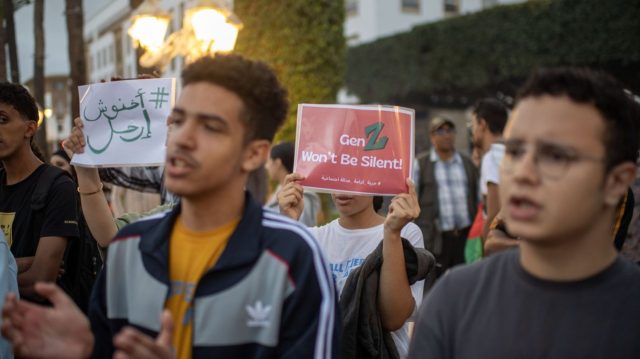
Morocco has been rocked in recent days by a growing protest movement that has threatened the civic and political fabric of a country considered by many international observers as one of the most open and stable on the continent. Predominantly Gen Z-led, the demonstrations have focused on alleged political corruption among Moroccan politicians, particularly regarding construction for the 2030 FIFA World Cup, which protesters allege has come at the expense of health care resources and infrastructure. As demonstrations turn violent and protesters begin turning to the Moroccan monarchy for support, Morocco has reached a fraught inflection point.
What are the protests about?
Largely the work of a “leaderless collective called Gen Z 212,” said The Associated Press, this protest movement comes after “anger boiled over in September” following the death of eight women during childbirth at a public hospital in the city of Agadir. Despite the city’s reputation as a tourist destination, residents of Agadir have “decried a lack of doctors and quality medical care,” and have “likened the government to a mafia.” Predominantly led by “internet-savvy youth,” the protests have “taken the country by surprise,” said Euronews. Demonstrators have “contrasted the flow of billions in investment toward preparation for the 2030 World Cup” to the fact that “many schools and hospitals lack funds and remain in a dire state.”
Young Moroccans in particular have felt “disenfranchised by the country’s policies and international ambitions,” which “mainly target external audiences and tourists,” said Sarah Zaaimi at the Atlantic Council. The protests have “attracted support from more established movements” including the Moroccan Association for Human Rights, which was “active during the 2011 protests that formed part of the Arab Spring,” said The New York Times.
How has Morocco’s government responded?
Since taking off, the Gen Z 212 protests have “escalated and become more destructive,” particularly in localities “far from where development efforts have been concentrated,” CNN said. The response from Madagascar’s government has been “swift and brutal,” said the network, with riot police “deployed across major cities, using force and arresting dozens.” Last week, the violence intensified after police shot and killed three protesters in the city of Lqliaa, in what Moroccan authorities on X said was an act of “legitimate self-defense.”
In his first public remarks on the ongoing protests, Prime Minister Aziz Akhannouch last week said the violence in Lqliaa was “regrettable” and offered to “engage in dialogue” with movement organizers. But while “initially drowned out” in the protests’ early days, “calls for the prime minister’s resignation have risen to the top of demonstrators’ demands,” said Le Monde. For some protesters, however, any negotiations with the government are a nonstarter. Instead, any dialogue must take place with the “real center of power in Morocco,” said Abdelilah Benabdeslam, identified by Bloomberg as a “senior figure” in a coalition of Moroccan NGOs backing the movement: “the Makhzen,” the Moroccan monarch’s nebulous “coterie that comprises advisers and senior security officials who provide counsel on strategic issues,” Bloomberg said.
To that end, the Gen Z 212 movement has made a public appeal to King Mohammed VI to enact a series of reforms. It is the Moroccan throne that ultimately “remains a guarantor of the nation’s security, stability, and dignity,” the group said in a letter to the monarch.
Is this an isolated incident?
Although the specific antecedents, context, and demands of the Gen Z 212 may be unique to Morocco, the “throughline” connecting Morocco’s demonstrations to similar movements around the globe is “clear,” said CNN. As the “latest in a string of youth-led demonstrations” around the world, the Times said, the disparate actions “do not appear to be connected” to each other operationally, but reflect a broad “growing anger among younger populations over government corruption and limited economic opportunities.”
The protests will “undoubtedly reshape” Morocco’s ”political conversation,“ but the country’s ”track record in managing crises“ points to the likelihood that it will simply ”absorb the current events and gradually return to normalcy,“ said the Atlantic Council’s Zaaimi. It is also ”essential to watch for any ripple” effect similar to the regional shockwaves of the Arab Spring that reshaped the region.
Snowballing controversy over World Cup construction and civic services has become a serious threat to Morocco’s political stability






